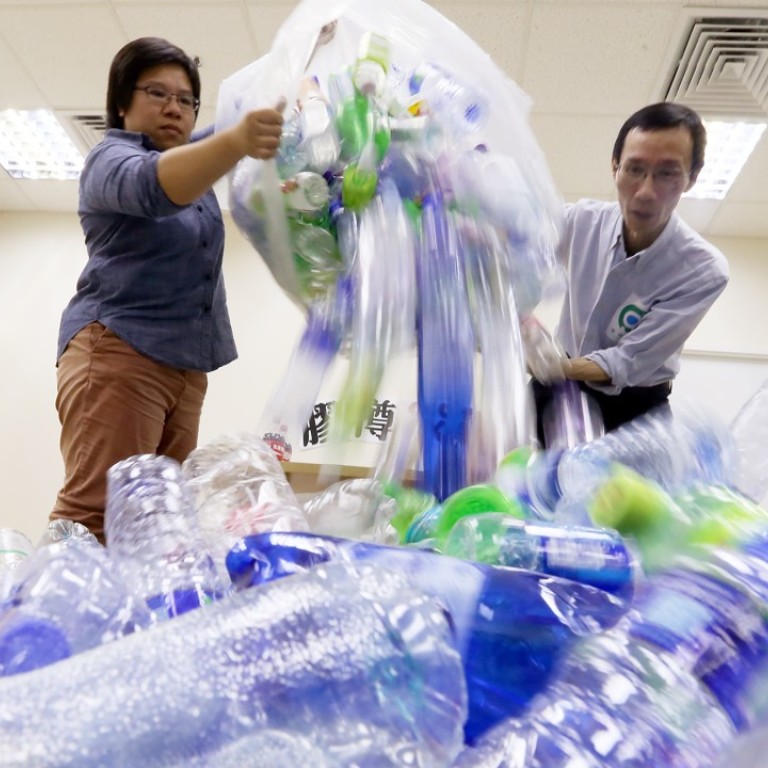
It’s time for action on plastic waste
As a report warns that Earth is turning into a plastic planet, we must look at our own inadequate efforts to deal with the problem
So many things produced for modern convenience are becoming serious threats to the environment that concerted efforts are needed to help save the planet. Plastic products are a case in point. Many millions of drink bottles are discarded immediately after consumption every day, and most people do not even think twice about the damage done.
If a study by US scientists is anything to go by, plastic is one of the materials that has been produced in astonishingly huge quantities: ever since its invention in the 1950s, as much as 8.3 billion tonnes of plastics have been produced worldwide. When spread across the planet, the waste would be big enough to cover the entire country of Argentina, or 2,560 Hong Kongs.
The impact would have been less severe had usage and disposal been more responsible. According to estimates, only some 12 per cent of the world’s plastic waste is incinerated and only 9 per cent recycled. That means almost 80 per cent of the material, usually non-biodegradable, is simply discarded as rubbish. With plastic production likely to hit 12 billion tonnes by 2050, the study rightly warned that the Earth is becoming a plastic planet.
Hong Kong has certainly contributed to the problem. In 2015, we discarded 2,183 tonnes of plastic waste each day, of which 206 tonnes were bottles made of various plastic materials. About two-thirds of the plastic waste materials end up in landfills, while anything recycled is mainly exported elsewhere.
Our low environmental awareness and inadequate policy intervention have made us one of the world’s most wasteful societies. It was only recently that the plastic bag charge was finally extended to all retail outlets. A levy on drinks in glass bottles has yet to take effect following its passage in the legislature last year, but officials do not seem to have plans for a levy on drinks in plastic bottles.
Our woefully inadequate efforts in recycling make a strong case for tackling the problem at the source. A few cities, such as San Francisco, have taken steps to ban bottled water.
That may seem too aggressive in Hong Kong, but increasingly, many governments and institutions are finding such bans justified in light of the damage to the environment. The University of Hong Kong has become the first local university to ban bottled water on campus, starting from last month.
As many as 20,000 single-use drinking bottles are sold around the world every second. That means more than a million pieces of non-biodegradable rubbish are produced every minute.
As a responsible global citizen, Hong Kong has to step up efforts on this front.

